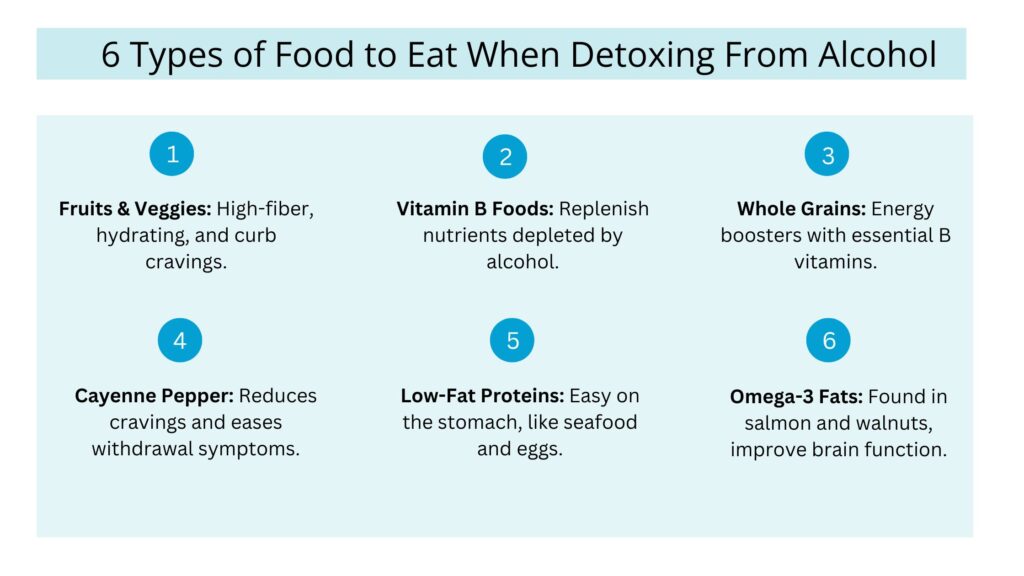Excessive alcohol consumption can leave you feeling sluggish, unhealthy, and unfulfilled. We’ll explore the importance of detoxification, its impact on your liver, and effective strategies to support your body’s natural cleansing processes. This guide will equip you with knowledge on how to detox your body from alcohol and dump the habit of drinking alcohol. Regain control of your health and embark on a journey of revitalization.
Understanding Alcohol Detoxification
Detoxification is the process of eliminating toxins from the body. When it comes to alcohol, the liver plays an important role by metabolizing (breaking down) alcohol, but excessive consumption brings an extra burden on its working. Detoxification aims to support the liver in effectively processing and eliminating alcohol from our system.
Importance of Detoxification for Health
Alcohol detoxification is important to get you alcohol-free quickly and safely. This means stopping all alcohol consumption to prevent further harm. It also focuses on relieving uncomfortable withdrawal symptoms you might experience, like anxiety, tremors, or trouble sleeping. Detox can also address any other health problems you have alongside your addiction for a more comprehensive start to your recovery journey.
Does alcohol help detox your body?
The notion that alcohol aids in detoxifying the body is a common misconception. In reality, alcohol consumption can exacerbate toxin buildup and hinder the body’s natural detoxification processes. While moderate alcohol intake may not immediately harm most individuals, excessive drinking can overload the liver and kidneys, organs crucial for detoxification. Chronic alcohol abuse can lead to liver damage, impairing its ability to filter toxins effectively. Additionally, alcohol can disrupt sleep patterns, weaken the immune system, and cause dehydration, further hindering the body’s detox efforts. Therefore, relying on alcohol for detoxification is not only ineffective but potentially harmful to overall health.
How Alcohol Impacts Your Liver
Alcohol consumption has a profound impact on the liver, a vital organ responsible for detoxification. When alcohol enters the body, the liver prioritizes its metabolism, converting it into less harmful substances. However, chronic alcohol abuse can overwhelm the liver, leading to inflammation, fatty liver disease, and ultimately, liver cirrhosis. Excessive alcohol intake also impairs the liver’s ability to process fats, leading to the accumulation of fatty deposits. Furthermore, alcohol-induced liver damage can hinder the organ’s ability to produce essential proteins and enzymes, disrupting metabolic processes throughout the body. Ultimately, prolonged alcohol abuse can result in irreversible liver damage and severe health complications.
Best Foods for Alcohol Detox
Alcohol withdrawal varies in duration and intensity from person to person, spanning from a few days to possibly a week or longer. During this phase, known as alcohol detox, the body expels alcohol entirely and may continue to do so for several weeks after withdrawal ends. Thankfully, maintaining a healthy, nutrient-dense diet can alleviate many discomforts associated with alcohol withdrawal and detoxification.
Hydration is key during alcohol detox. Your body may struggle to adapt to reduced fluid intake, making water consumption crucial. Symptoms like vomiting, diarrhea, and sweating, common during withdrawal, can exacerbate dehydration. However, replenishing lost fluids by drinking water can help mitigate these effects.

Strategies for Effective Alcohol Detoxification
Now you have got the idea of detoxification, let’s look at some practical ways to support your body’s natural detoxification process:
-
Gradual Reduction
Abruptly stopping alcohol intake can be counterproductive. Thinking of quitting alcohol is like a marathon, not a sprint. Gradually reducing your alcohol intake allows your body to adjust at its own pace, minimizing potential discomfort. This is a key strategy on how to detox your body from alcohol.
-
Stay Hydrated
As a diuretic, alcohol increases urination and can lead to dehydration. Dehydration can make withdrawal symptoms worse. Hence, it’s advisable to drink plenty of water throughout the day. Consider drinking herbal teas and electrolyte-rich beverages for extra support.
-
Nourish Your Body
Plan a balanced diet rich in protein, essential vitamins, and minerals for optimal liver function and overall health. You can include fruits, vegetables, and whole grains in your diet. Foods high in B vitamins, such as leafy greens, legumes, and nuts, are beneficial as alcohol depletes these vital nutrients. This is another important step on how to detox your body from alcohol.
-
Prioritize Rest
Aim for 7-8 hours of quality sleep each night for optimal healing. To promote better sleep, practice a regular sleep schedule and create a relaxing bedtime routine.
-
Exercise Regularly
Physical activity, even moderate exercise like walking or swimming, can significantly improve your well-being. Exercise helps boost energy levels, enhance sleep quality, and reduce stress, all contributing to a smoother detox process.
-
Manage Stress
Stress can be a trigger for alcohol cravings. This makes it important to find healthy ways to manage stress. Involving meditation, yoga, or deep breathing exercises in your daily routine can be very helpful.
- Supplement Wisely
Taking supplements can support your body’s detoxification efforts. B-complex vitamins, vitamin C, and milk thistle are some popular choices. However, it’s important to consult your doctor before starting any supplements to ensure they’re safe for you and don’t interact with any medications you’re taking.
-
Seek Support
Detoxification might be challenging, but a support system can significantly ease the journey. Consider reaching out to a therapist or joining a support group helping recovering alcoholics. Sharing your story with individuals who relate to your experience can provide invaluable encouragement along the way. How to detox your body from alcohol can also be significantly aided by a support system, as they can offer guidance and hold you accountable throughout the process.
Additional Tips for a Smooth Detox
- Limit sugary drinks and processed foods: These can hinder your body’s ability to detox.
- Consider a liver cleanse: Certain natural remedies like dandelion root or milk thistle tea can support liver function. However, consult your doctor before trying them.
- Listen to your body: During the detox process, pay close attention to how you feel. If you experience severe withdrawal symptoms, seek medical advice immediately.
Remember: Detoxification is just the first step on your path to a healthier lifestyle. Maintaining a healthy diet, regular exercise, and a positive mindset will ensure long-term well-being.
How to detox your body from alcohol goes beyond just the physical aspects. It’s also about building a solid foundation for lasting change.
The Road to Long-Term Health
Detoxifying from alcohol is an opportunity for a fresh start. By incorporating the strategies mentioned above, you can empower your body to heal and function optimally. Here are some additional tips to build upon your progress:
- Explore new hobbies: Find activities you enjoy that don’t center around alcohol.
- Establish well-being-promoting habits: Develop healthy ways of managing stress and handling difficult emotions.
- Celebrate Your Success: Recognize your achievements and treat yourself when you reach your goals.
Remember, you are not alone on this journey. There are many resources available, and understanding how to detox your body from alcohol is a valuable tool in your journey to better health.
What to know if you’re a casual drinker
For casual drinkers, understanding the potential risks associated with alcohol consumption is crucial. While moderate alcohol intake may not pose immediate harm to most individuals, it’s essential to be aware of the recommended limits. The guidelines suggest up to one standard drink per day for women and up to two for men. Additionally, it’s important to avoid binge drinking, which can lead to various health problems and accidents. Being mindful of alcohol’s effects on mood, behavior, and overall well-being is key. Regularly assessing one’s drinking habits and seeking support if alcohol starts to negatively impact daily life is essential for maintaining a healthy relationship with alcohol.
The bottom line
Whether you’re a casual drinker or someone looking at how to detox your body from alcohol, understanding its impact on your body is paramount. While alcohol may seem like a way to unwind or socialize, its effects on the liver and overall health can be significant. Embracing strategies for effective detoxification, such as gradual reduction, staying hydrated, and seeking support, can pave the way for a healthier lifestyle. Remember, detoxification is just the first step. Building upon your progress with positive habits and seeking ongoing support will ensure long-term well-being. So, whether you’re taking the first step or maintaining sobriety, prioritize your health and seek the support you need.



